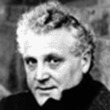Uniform justice
Description
More Details
9780792741381
9781555849085
Excerpt
Similar Series From Novelist
Similar Titles From NoveList
Similar Authors From NoveList
Published Reviews
Booklist Review
American readers, having endured seven long years without a new Guido Brunetti novel, can now celebrate the return of Leon's world-weary Venetian commissario. Brunetti, like Michael Dibdin's Aurelio Zen, is beyond idealism; he swims freely in corrupt waters yet attempts to carve out a separate peace for himself in the way he does his work and lives his life. Both are challenged by his latest case, involving the apparent suicide of a cadet at a Venetian military academy. The boy's father, a reform-minded politician, knows his son didn't kill himself but refuses to talk. As Brunetti slogs through the usual mire of corruption and cover-up, he ponders how long it would be possible to go back and forth between his professional world and his private world without introducing the contamination of the first to the second. It is that private world--Brunetti's family life--that drives this wonderfully warmhearted, tragicomic series. Brunetti's interactions with his wife say much in few words, as when he attempts to criticize her tolerant attitude by chiding, Love before truth? and she replies, Love before everything, I'm afraid, Guido. Those two words, I'm afraid, transform a potentially sentimental, even trite, exchange into a something very different: yes, love trumps justice, but living with that fact isn't all romance. It's high time this series earns the accolades in the U.S. it has been receiving in Europe for years. --Bill Ott Copyright 2003 Booklist
Publisher's Weekly Review
In this superb novel, Leon's latest in the Commissario Guido Brunetti series (A Noble Radiance, etc.), the Venetian police detective and family man is summoned to the exclusive San Martino Military Academy, where Cadet Ernesto Moro has been found dead, hanging in the lavatory. The other cadets and the academy brass give a chilly reception to any "civilians" who trespass into their midst, including the Venetian police. Believing Cadet Moro was the victim of homicide rather than suicide, Brunetti traces a sinister trail that leads to the dead boy's father, a doctor-turned-politician who once revealed then ducked the ramifications of a military procurement scandal. This is not the Venice of Thomas Mann or Henry James-the palazzos, gondoliers and Doges' monuments are all but overlooked. Leon's city is winter-cold and gray, with corruption rather than gilt glinting through the fog, and a culture in the grip of a Kafkaesque bureaucracy that runs on secrets and bribes. Humane and intelligent, a good man working in an impossible system, Brunetti displays an acerbic, economical wisdom. The plot flows along like the Adriatic tide through a narrow canal-swift, none-too-clean and inevitable. This is an outstanding book, deserving of the widest audience possible, a chance for American readers to again experience a master practitioner's art. (Sept. 29) Forecast: A 50,000-copy first printing and a $75,000 promotional budget, plus a contest aimed at booksellers and librarians for a free trip for two to Venice, will help raise the profile of an author who hasn't been published in the U.S. since 1996. European reviewers consistently put Leon in the same class as Ruth Rendell and Patricia Highsmith, and American critics should start doing the same. (c) Copyright PWxyz, LLC. All rights reserved
Library Journal Review
Even the parents of a cadet found hanged aren't cooperating with Venetian detective Brunetti's efforts to determine whether the death was suicide-or murder. Librarians interested in a free trip to Venice should check out www.groveatlantic.com for contest details. (c) Copyright 2010. Library Journals LLC, a wholly owned subsidiary of Media Source, Inc. No redistribution permitted.
Kirkus Book Review
After half a dozen adventures published abroad, Venice's sorely missed Commissario Guido Brunetti (Acqua Alta, 1996, etc.) returns to American bookshops in the case of the hanged cadet. If Ernesto Moro doesn't seem to have been close to either any of his fellow cadets at the San Martino Military Academy or indeed to his own family, that's because neither group is exactly nurturing. San Martino is governed by a code of decorum so strict that when Brunetti engages young Giuliano Ruffo in a conversation about music without his parents' consent, his superiors call him to account. And the Moro family seems equally remote from each other. Dottor Fernando Moro, formerly an incorruptible Member of Parliament, separated from his wife Federica, who was shot and nearly killed in a hunting accident, around the same time he resigned his government post, and neither parent is able to account for their daughter Valentina. As Brunetti, haunted by questions Ernesto's apparent (and eagerly accepted) suicide raises for his own luckier family, proceeds in his leisurely investigations, a pattern of systematic wrongdoing slowly emerges--a pattern more interesting than any of the characters who seem stifled by the miasmal corruption. A powerful indictment of an Italian society in which "scandal had the same shelf life as fresh fish: by the third day, both were worthless; one because it had begun to stink, the other because it no longer did." Copyright ©Kirkus Reviews, used with permission.
Booklist Reviews
/*Starred Review*/ American readers, having endured seven long years without a new Guido Brunetti novel, can now celebrate the return of Leon's world-weary Venetian commissario. Brunetti, like Michael Dibdin's Aurelio Zen, is beyond idealism; he swims freely in corrupt waters yet attempts to carve out a separate peace for himself in the way he does his work and lives his life. Both are challenged by his latest case, involving the apparent suicide of a cadet at a Venetian military academy. The boy's father, a reform-minded politician, knows his son didn't kill himself but refuses to talk. As Brunetti slogs through the usual mire of corruption and cover-up, he ponders "how long it would be possible to go back and forth between his professional world and his private world without introducing the contamination of the first to the second." It is that private world--Brunetti's family life--that drives this wonderfully warmhearted, tragicomic series. Brunetti's interactions with his wife say much in few words, as when he attempts to criticize her tolerant attitude by chiding, "Love before truth?" and she replies, "Love before everything, I'm afraid, Guido." Those two words, "I'm afraid," transform a potentially sentimental, even trite, exchange into a something very different: yes, love trumps justice, but living with that fact isn't all romance. It's high time this series earns the accolades in the U.S. it has been receiving in Europe for years. ((Reviewed July 2003)) Copyright 2003 Booklist Reviews
Library Journal Reviews
Mystery fans who have not yet discovered Leon's elegant Venetian puzzles starring the canny but scrupulously honest police commissario Guido Brunetti are in for a special treat. An American who has lived in Venice for more than 20 years, Leon offers intimate, behind-the-scenes portraits of an ancient city that few tourists ever see while presenting intricate, intelligent mysteries that address facets of contemporary Italian life: the opera (Death at La Fenice), the Church (The Death of Faith), and now the military. When Brunetti is called to investigate the hanging death of a young cadet at an exclusive military academy, he meets a wall of silence from the authorities, who just want to see the case closed quickly as a "suicide." Already contemptuous of a corrupt system that he sees as no different from the Mafia except "that some wore easily recognized uniforms while the other leaned toward Armani and Brioni," Brunetti turns to the boy's grieving but uncooperative parents for help. Could the father's resignation as one of the few honest politicians from the Italian parliament have something to do with the boy's death? Brunetti doggedly pursues the case even though he realizes that in the end justice is not always dispensed uniformly. But isn't that like life? Currently, Leon's other marvelous titles are only available in expensive British paperbacks, but one hopes that Atlantic Monthly and Penguin, which is issuing a mass-market edition of A Noble Radiance, will continue to reintroduce this wonderful writer to American readers. Highly recommended. [Previewed in Prepub Alert, LJ 5/15/03.]-Wilda Williams, "Library Journal" Copyright 2003 Reed Business Information.
Publishers Weekly Reviews
In this superb novel, Leon's latest in the Commissario Guido Brunetti series (A Noble Radiance, etc.), the Venetian police detective and family man is summoned to the exclusive San Martino Military Academy, where Cadet Ernesto Moro has been found dead, hanging in the lavatory. The other cadets and the academy brass give a chilly reception to any "civilians" who trespass into their midst, including the Venetian police. Believing Cadet Moro was the victim of homicide rather than suicide, Brunetti traces a sinister trail that leads to the dead boy's father, a doctor-turned-politician who once revealed then ducked the ramifications of a military procurement scandal. This is not the Venice of Thomas Mann or Henry James-the palazzos, gondoliers and Doges' monuments are all but overlooked. Leon's city is winter-cold and gray, with corruption rather than gilt glinting through the fog, and a culture in the grip of a Kafkaesque bureaucracy that runs on secrets and bribes. Humane and intelligent, a good man working in an impossible system, Brunetti displays an acerbic, economical wisdom. The plot flows along like the Adriatic tide through a narrow canal-swift, none-too-clean and inevitable. This is an outstanding book, deserving of the widest audience possible, a chance for American readers to again experience a master practitioner's art. (Sept. 29) Forecast: A 50,000-copy first printing and a $75,000 promotional budget, plus a contest aimed at booksellers and librarians for a free trip for two to Venice, will help raise the profile of an author who hasn't been published in the U.S. since 1996. European reviewers consistently put Leon in the same class as Ruth Rendell and Patricia Highsmith, and American critics should start doing the same. Copyright 2003 Reed Business Information.
































































